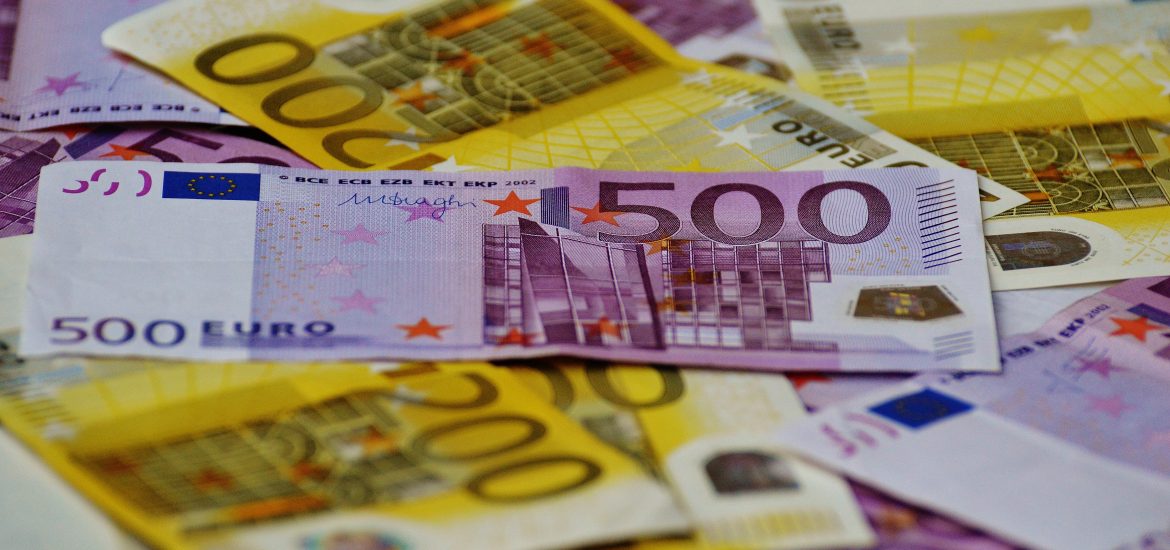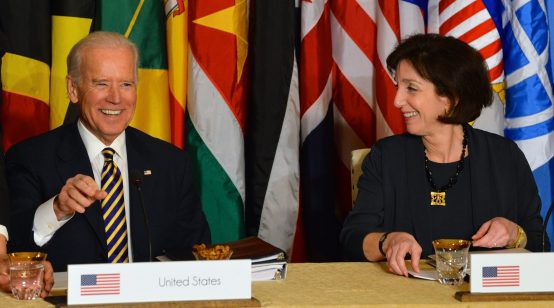
Last September, European Commission President Jean-Claude Juncker proposed a bold idea. “We must do more to allow our single currency to play its full role on the international scene,” he said. “It is absurd that Europe pays for 80 percent of its energy import bill – worth 300 billion euros a year – in U.S. dollars when only roughly 2 percent of our energy imports come from the United States.”
Juncker was talking, of course, about oil. Europe is the world’s largest importer; it outpaced China and the United States by roughly 3 million barrels per day in 2016. The gap with China has closed, but relativity is little comfort when Europe outlaid $266 billion for oil imports in 2018. Doing so in euros would have saved millions every year on currency conversion costs alone!
There are other patent advantages to using euros to buy oil, from improving current-account deficits to strengthening the global prestige of Europe’s currency. It would also spawn stronger bilateral relations with oil-producing countries, something Europe very much wants in Iran. Brexit, U.S. oil sanctions, and anti-dollar movements in Russia and China are pushing Europe and Juncker to yearn for euro-denominated oil. The problem, however, is not political. Until it indeed becomes so, the oil industry will prefer the dollar out of convenience.
Dollar convenience
Dollar-denominated oil did not emerge until the 1950s, when global oil demand surged. The United States was, by far, the world’s largest oil producer. At the same time, U.S. private companies assumed controlling positions in the Gulf, the new center of gravity of world production. The companies naturally priced their oil in dollars. At the same time, the United States had become the world’s leading lender after the two World Wars, and the dollar became the world’s preferred reserve currency.
The exceptional nature of this confluence between oil and the dollar, however, means that it is not guaranteed to continue. Yet it does, as many things do, largely out of convenience, or what economists refer to as network effects. Even when Middle Eastern countries nationalized their oil industries in the 1970s, most continued selling their oil in dollars because oil is a homogenous commodity. By quoting its price in a common currency, it was easier for countries to enter the market as sellers. Diplomatic considerations also played a role in Saudi Arabia. It retained the greenback in order to please its main security patron and reinvest the dollars back in the United States – petrodollars – as a way to diversify their national wealth.
Today, national oil companies such as Saudi Aramco, not U.S. private companies, own and sell most of the world’s oil. They continue doing so in dollars because homogeneity makes it easier. Trading oil is hard enough, they argue, why make it harder, i.e. more confusing for buyers, with different currencies?
Anglo-Saxon annoyance
Europe has long resented paying for oil in dollars. The issue came into sharp relief during the U.S. and UK-led invasion of Iraq in 2003. A conspiracy theory emerged that the invasion was prompted by Hussein’s threat to sell his oil in euros. The truth is that French and German oil-producing companies held strong positions in Iraq. Paris and Berlin knew that the invasion would upset them, as well as the political balance in the Middle East.
Brexit is partly responsible for the recent push for euro oil, which would reinforce the spirit and economic sovereignty of Europe. It also marks the passing of an era in which North Sea oil was a primary source of supply. As these sources have depleted and foreign exchange risks are set to multiply with Brexit, companies selling oil or gas into the continent may shift to using euros to make trading easier.
Across the pond, Trump’s aggressive financial attacks against Iran are reminding Europe of Iraq and galvanizing discussions about the euro. Whereas Obama sanctioned Iran’s oil to end its nuclear program, an objective Europe shared, Trump is deploying them gratuitously and hurting European companies. Total, the first and only Western company to reenter Iran after Obama’s sanctions were lifted, had to abandon the country in 2018.
Start on the margins
For now, the European Commission will try to dent dollar oil on the margins.
The first is by launching a euro crude oil benchmark, much like Russia did in 2016 and China in 2018. These ventures have had limited success due to a lack of liquidity and general volatility, but both are still relatively young. A euro benchmark could prove different, in theory. The key is getting enough buyers, sellers, and traders to buy in.
After Juncker’s statement last September, France and Germany also announced that it would develop an alternative to the SWIFT system for international payments. Once again, such a move follows in the footsteps of China and Russia. To circumvent sanctions, several Russian banks joined the China International Payments System (CIPS), or China’s version of SWIFT, in March.
These marginal measures are unlikely to change much. What would make a difference, however, is an anti-dollar alliance between Europe and China. Yet this would force Europe to compromise strategic interests for commercial ones and may not be worth it. We are seeing this same dynamic play out with Russian pipeline gas and Huawei’s 5G networks.
Watching the Gulf
If the Gulf countries were to leave the U.S. orbit and embrace an alliance with Europe and China, perhaps there might be enough political will for the industry to move beyond dollar-denominated oil. The Gulf, after all, is still home to more than 50% of global conventional oil reserves. It bears watching most closely.
The specter of such a move emerged in early April. After the U.S. Congress proposed a bill that would make OPEC members vulnerable to anti-trust lawsuits, Saudi Arabia threatened to sell its oil in non-dollar currencies. Such a move would be self-defeating, not least because Gulf countries have pegged their currencies to the dollar. Both sides are blustering, but the rift reveals that Saudi leverages dollar oil as a bargaining position.
U.S. energy coercion is causing allies and foes to imagine ways to leave the dollar, even if the industry itself has no interest in doing so. For now, Europe should continue to press for euro oil. The benefits are clear.






[…] http://www.energy-reporters.com/opinion/yearning-for-euro-denominated-oil/ […]